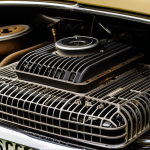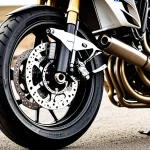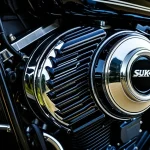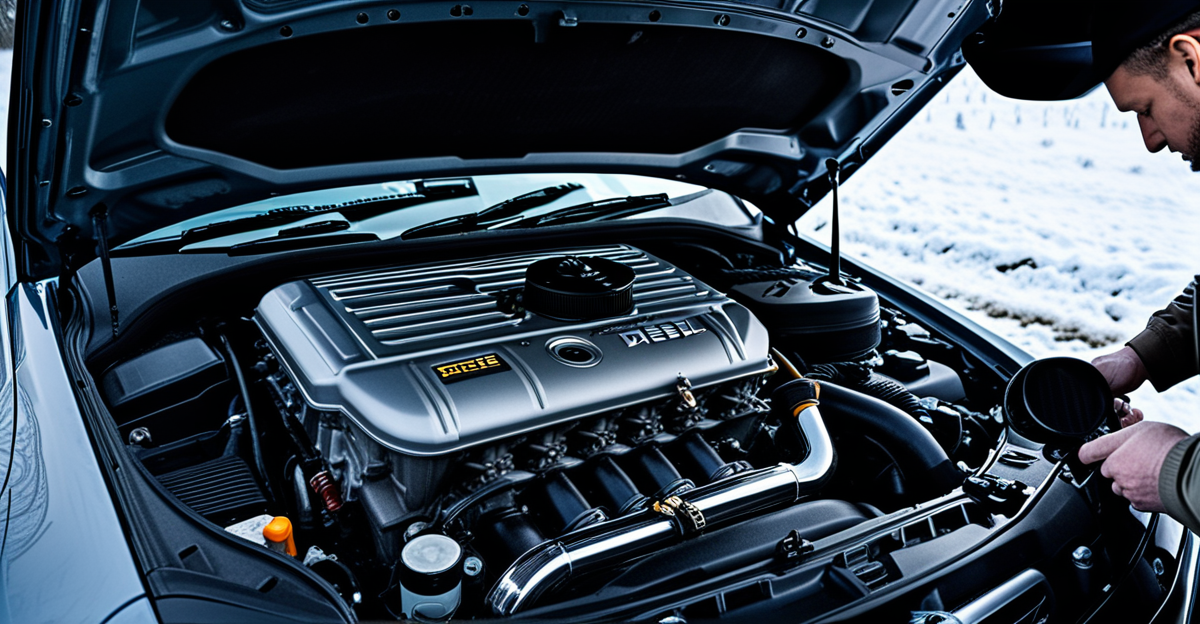Importance of Winterizing Diesel Engines
When it comes to winterizing diesel engines, preparing for cold weather can prevent many common issues and ensure your engine runs smoothly. Cold weather can significantly impact diesel engines, often causing problems like fuel gelling and battery failures. These are not just inconveniences; they can lead to more severe engine damage if not addressed properly.
Diesel engine maintenance becomes especially crucial during the colder months. Ensuring that your engine is fully prepared for the winter can prevent these common problems. By taking proactive steps, you can reduce the likelihood of facing issues that could leave you stranded on a cold day.
Sujet a lire : Ultimate Guide to Sustainable Disposal Methods for Classic Car Parts in the UK
Interestingly, statistics show that a large percentage of diesel engine failures occur during winter due to inadequate preparation. Engine failures in cold conditions are due primarily to factors like improper fuel, thickened oil, or weak batteries. By focusing on cold weather preparation, diesel engine owners can mitigate these risks.
Essential Maintenance Practices
Maintaining your diesel engine during winter is crucial to ensure it performs optimally and avoids unexpected breakdowns. Diesel engine maintenance tips can help in minimizing cold-weather complications. Consider these practices as part of your winter maintenance checklist.
A lire également : Essential Guide to the Safest Cars for UK Teens: Top Picks for Young Drivers
Fuel System Preparation
One of the key aspects of diesel engine maintenance is preparing the fuel system. Winter-grade diesel fuel is essential as it has properties that reduce the risk of gelling, which is a common issue in cold weather. Additionally, adding anti-gel additives can further protect your engine. These additives modify the wax crystals in diesel fuel, lowering the gelling point. Equally important is managing fuel tank cleanliness—any water or impurities can freeze and block the fuel lines.
Engine Oil and Fluids
In colder temperatures, choosing the right oil becomes vital. Selecting winter oil for diesel engines ensures better viscosity, providing smooth lubrication despite temperature drops. Moreover, it’s critical to check and replace the coolant levels. The coolant’s antifreeze properties need to be maintained to prevent freezing within the engine components. Don’t overlook the battery either; maintaining its fluid levels can help in preserving power and ensuring reliable starts.
Regular Inspections
Conducting regular inspections of your diesel engine can identify potential issues before the cold sets in. Pay attention to signs of wear and tear, such as loose belts or degrading hoses, which could lead to failures in cold weather. It’s advisable to employ professional services for thorough checks. This ensures no stone is left unturned, contributing significantly to your cold weather preparation plan.
Modifications for Cold Weather Resilience
When it comes to ensuring your diesel engine runs smoothly in colder climates, making specific diesel engine modifications can significantly enhance resilience. With cold weather upgrades, you can proactively address challenges posed by low temperatures, ensuring reliability and longevity.
Installing Block Heaters
Engine block heaters play a crucial role in maintaining engine temperature. In extreme cold, they keep the engine warm, facilitating smoother starts and reducing wear. Proper installation is key; ensure heaters are compatible with your engine model and follow manufacturer guidelines. Using a timer can save energy, activating the heater a few hours before you plan to start the engine. Maintain ideal temperature settings to prevent overheating while optimizing the setup.
Upgrading Battery Systems
Winter can severely affect battery performance, making high-quality batteries essential. Cold temperatures lower battery capacity, which can hinder engine starts. Regularly check battery connections for corrosion and ensure proper fluid levels. For added reliability, consider batteries designed for cold climates. Implement regular testing to monitor battery health and charge levels, maximizing performance throughout the season.
Auxiliary Heaters and Insulation
Auxiliary heaters offer additional warmth to both the engine and the vehicle cabin. Options include fuel-operated or electric heaters, tailored to your specific needs and existing power setup. Additionally, insulating components like hoses and pipes can prevent freezing. When choosing a heater, consider factors such as vehicle size and typical operating conditions to make an informed decision. Effective insulation can drastically improve engine performance in frigid weather.
Preventative Measures to Avoid Damage
Winter brings unique challenges for diesel engine owners, emphasizing the need for preventative maintenance diesel engines. Implementing effective cold weather safeguards can avert costly repairs and ensure your vehicle operates reliably during harsh conditions. Let’s explore some common issues and the measures you can take.
Addressing Common Issues
Antifreeze leaks can be detrimental, leading to overheating and engine damage. Regularly inspecting hoses and seals can help detect leaks early. As a quick solution, check for puddles under the vehicle and top up antifreeze levels as needed. Fuel line freeze is another frequent issue; using fuel line antifreeze and ensuring lines are free of water can prevent blockages. Surprisingly, engines are susceptible to overheating in winter due to restricted coolant flow. Regular inspections and maintaining recommended coolant levels can counteract this issue.
Winter Driving Preparations
Tires play a significant role in ensuring safety during winter drives. Opt for winter tires to enhance grip on icy roads. Adjust driving habits to match cold weather conditions, such as reducing speed and increasing following distances. Plan routes to avoid extreme conditions, especially in remote areas, to reduce the risk of getting stranded. These adjustments not only improve safety but also minimize stress on the engine.
Storage Tips for Off-Season Vehicles
For diesel vehicles in storage during winter, specific practices ensure they remain in top condition. Clean the vehicle to prevent rust and cover it to protect from the elements. Add a fuel stabilizer to prevent fuel degradation over time. Routine engine checks, even when not in use, help catch potential issues early. For long-term storage, disconnect the battery to preserve its life and maintain the tires to prevent flat spots. Implementing these procedures ensures your vehicle remains ready to perform once it’s time to hit the road again.
Regional Weather Considerations in the UK
Understanding the UK winter weather and its diverse regions is crucial for diesel engine owners. The UK’s variable climate can mean different regional diesel engine tips are necessary to ensure optimal performance and reliability throughout the season.
Overview of UK Regional Climates and Their Effects on Vehicles
The UK experiences a variety of climates, from frigid Highlands in Scotland to the milder conditions of the South. This variability impacts how winter affects diesel engines. In Scotland, engines face more severe cold, heightening the need for thorough cold weather preparation such as proper battery insulation and the use of winter-grade diesel. In contrast, the South’s milder conditions might demand more focus on moisture management within the engine system.
Tailoring Winterization Strategies Based on Local Conditions
Adapting winterizing diesel engines strategies to local climates is essential. In areas prone to heavy snow and ice, regular checks of tires and brakes can be more significant. Coastal regions might face salt-induced corrosion, necessitating regular cleaning and protective coatings for engine components. Tailored approaches ensure diesel engines are guarded against region-specific challenges, enhancing overall durability.
Case Studies or Examples from Different Regions in the UK
Consider a region like the Midlands, where fluctuating temperatures can lead to inconsistent engine performance. Here, proactive measures like engine block heater installation greatly assist in maintaining consistent engine temperature. Conversely, in Wales, where rain and moisture are prevalent, ensuring fuel tank cleanliness and addressing potential water ingress in fuel lines are critical steps. Each example highlights the necessity for regional vigilance and adaptation, showcasing the versatility required in diesel engine maintenance across the UK.










